Behind the scenes and in the cells at Elland Road Police Station
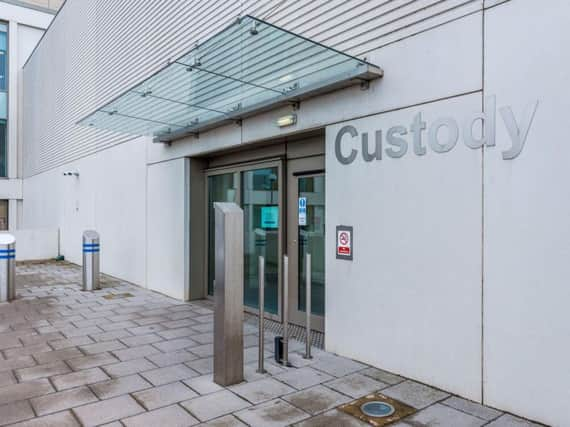

However, as the cells at Elland Road police station re-opened last week after repairs and re-painting, the Yorkshire Evening Post was given exclusive behind the scenes access.
From drink-driving to murder, the custody suite at Elland Road sees all types of crimes, criminals and capers and officers have to be prepared for anything and everything.
Advertisement
Hide AdAdvertisement
Hide AdMost people arrive after arrest and the first stop will be the van dock where prisoners enter the station through a series of secure doors.
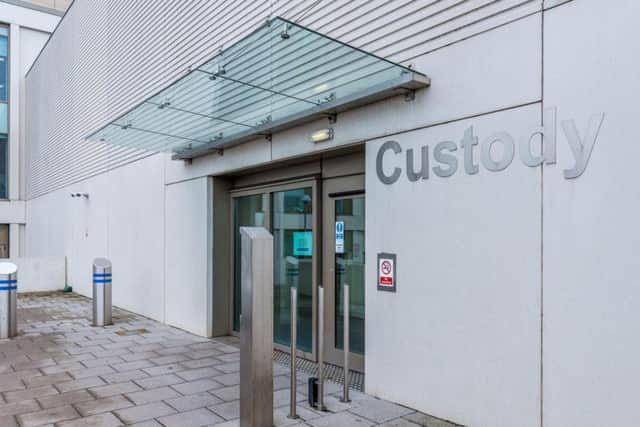

Once inside they will be put before the custody sergeant or the detention officer and asked a series of set questions and, once they are satisfied there are grounds to detain a person, they are ‘booked in’ - in a process taking on average 23 minutes.
Booking prisoners
It is not just a case of throwing people in a cell. There are things such as medical, dietary and mental health needs to be considered.
Insp Markus Roberts explains: “It depends who we are bringing in, if they are compliant, intoxicated, have mental health problems, or need an interpreter which is another of the issues that we sometimes have - and all that can take longer.
Advertisement
Hide AdAdvertisement
Hide Ad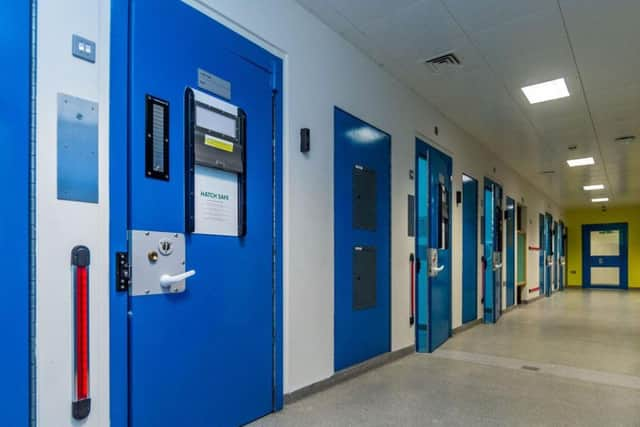

“The booking in process is around what their welfare needs are, whether that is medical, mental health issues, dietary requirements, do they need to see a nurse?
“We get people with mental health issues that are brought here for a variety of reasons. We will get someone from the crisis team to assess them if there are concerns that the custody suite is not the right place for them.
“We are looking after their welfare at the end of the day. We have always had that focus on mental health but with Elland Road being the main hub we have mental health professionals here 24 hours a day, whereas before it was on call.”
If a prisoner is detained and deemed to be in the right place, they all pass through a metal detector, are searched and taken to a biometrics room for fingerprints, their photo and DNA samples to be taken.
Advertisement
Hide AdAdvertisement
Hide Ad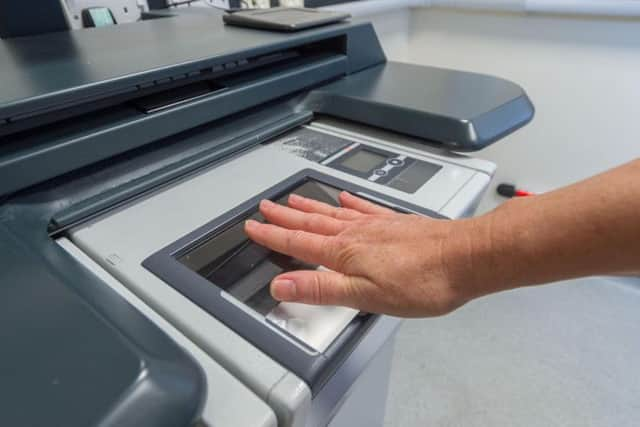

In addition, drink or drug driving prisoners are taken to a dedicated room for breath and blood tests.
In the cells
After that prisoners will be put in one of Elland Road station’s 40 cells after having their shoelaces and belts removed and might have to wear prison issue clothes if their own are needed for forensic evidence or tests.
A standard cell has a sink and a toilet, some don’t if samples need to be taken for evidence and some have clear doors if the prisoner is claustrophobic.
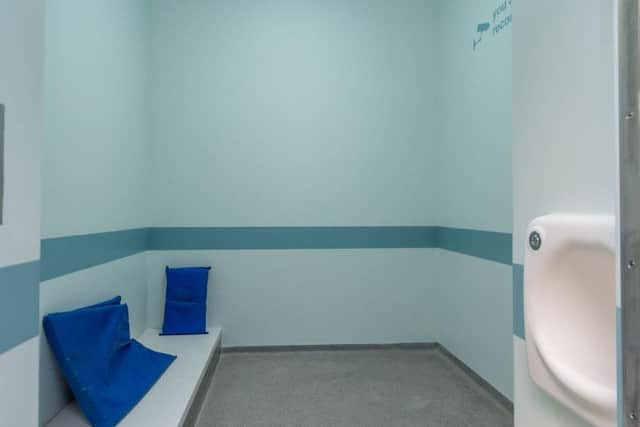

The custody suite also has interview rooms where detectives come downstairs and do their questioning. Tables and chairs are bolted down and all around the custody suite there are panic bars that are linked to cameras if officers need help with prisoners.
Advertisement
Hide AdAdvertisement
Hide AdThe whole process, from being taken to the police station to leaving, is usually nine hours (microwaved meals provided) other than in situations where extensions are granted to detain suspects.
Operating the custody suite is not just a case of going through the set procedure, but also about dealing with each day, each shift and each prisoner on their own merits.
Insp Roberts added: “You have to be quite fluid. The key is to tend to the needs of the people that you are bringing in. We don’t know what a busy night will be. Traditionally it would have been a Friday or Saturday night but now it might be a Tuesday night or all or none of that.
“We are dealing with a concentration of people that are not always happy to be here and we are all trained in restraining techniques - but the main tool for a police officer is communication skills. It is not just about using a baton or gas - it is always communication.”